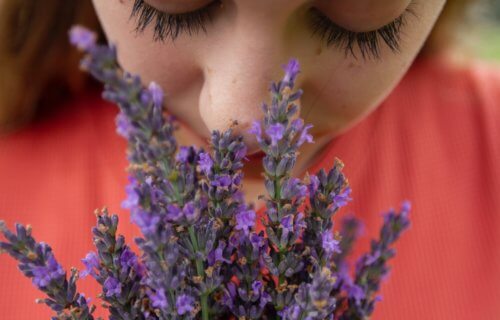BEIJING — We may be smarter than our primitive ancestors, but they likely had much stronger noses. According to new research, humans are losing their sense of smell as it becomes less important to detect predators.
Many people have now developed mutations that make fragrances seem weaker, say scientists from the Chinese Academy of Sciences. People with older scent receptor genes have a much more intense sense of smell than others.
The discovery is based on an analysis of receptor genes for musk and BO (body odor). It backs a theory that noses were more important to our prehistoric ancestors. A strong sense of smell helped them sniff out food and predators in the wild.
The genomes of 1,000 Han Chinese people were screened to identify variants linked to perception of ten scents. Results were confirmed by repeating the experiment for six of them in 364 ethnically diverse individuals.
“This study of olfactory genetic and perceptual variation will improve our understanding of how the olfactory system encodes odor properties,” the authors write. “It supports the hypothesis that the primate olfactory gene repertoire has degenerated over time.”
The international team found two new genes that detect a synthetic musk used in perfumes and a compound in human underarm sweat. Our sense of smell is not as good as most animals, of course. There are around five million receptor cells in the human nose. A dog has 200 million.
But every individual experiences smell in their own unique way with differences in quality, pleasantness and intensity. Scientists combined these with a person’s genetics to discover the role of various scent receptors. Participants carried different versions of the musk and underarm odor genes. They affected how an individual perceived the scents.
“Comparing this perceptual variability with genetic variability allows us to identify the role of single odorant receptors in the perceptual code,” the authors write. “Progress in sequencing technology and increased access to previously genotyped cohorts has enhanced our ability to uncover the genetic components underlying differences in odor perception.”
Is our sense of smell is still evolving?
The study is the first to demonstrate how we have evolved less sensitive noses over tens of thousands of years. It shows people with older scent receptor genes shared with other non-human primates tended to rate odors as more intense. This is due to changes in the set of genes that code for our smell receptors.
The analysis also identified three previously reported associations between genes for scent receptors and specific odors. They were based on mainly Caucasian participants. The latest results are from East Asian and diverse populations. It suggests genes linked to odor detection remain constant across people from different backgrounds.
“This study provides information about coding for human body odor, and gives us insight into broader mechanisms of olfactory coding, such as how differential OR activation can converge on a similar percept,” the paper says.
The findings have implications for health. A good sense of smell boosts both mind and body. It can lower stress, improve attraction, wake you up or soothe you to sleep. The significant effects of smell on the brain are believed to be a relic of its life-and-death importance for early man. Smell cells in the nose are linked to the limbic system, which in evolutionary terms is among the oldest parts of the brain. They govern emotions, behavior and long-term memory. Sense of smell is also controlled from here.
In primitive man this sense would have been much more powerful, helping him to detect enemies and food. But although the survival importance of smell has largely disappeared, its effects on the brain and body remain. A whiff of lavender releases feel-good hormones and makes us happier. The scent of roses lowers blood pressure and a hint of eucalyptus improves alertness.
The paper is published in the journal PLOS Genetics.
South West News Service writer Mark Waghorn contributed to this report.
